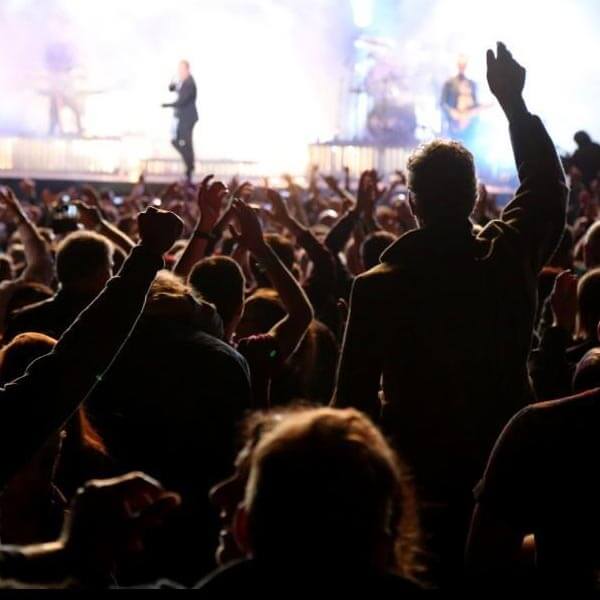
Album review: The Maccabees 'Marks To Prove It'
Our Live Music Editor, Ben Smith gets to grips with The Maccabees' fourth studio album 'Marks To Prove It'.
Ben Smith
Last updated: 11th Aug 2015
Image: The Maccabees
It's widely up for debate that the window for producing festival headliners has significantly narrowed since the turn of the century. But has it?
The Maccabees certainly run against that grain and you'd tip them for the peak of the Pyramid stage in future if this record is anything to go by. It's been three years in the making, yet it seems as if from the get-go each album that has came before it was building to this point.
It's remarkable how The Maccabees have continuously evolved from their happy-go-lucky indie days with Colour It In, singing about wave machines at Latchmere leisure centre, to an expansive almost orchestral bankrolled quintet meddling with the emotions of an audience that splays well beyond the scenesters that embraced indie culture back in 2007.
From that period, many bands from the same pool have been drawn by the trending current and washed away into mere obscurity, yet with each album The Maccabeees have continuously evolved, broadening their sound pallet with such precision that guitars no longer breathe heavily down the neck of each and every crevice of their albums.
Marks To Prove It was recorded in their Elephant and Castle studio, amidst the hell that is the slippery slope of London gentrification. Though the hustle and bustle of the City fails to seep through to the album and rather the anxiety of the lyricism paradoxically washes against the elegant atmospherics that enrapture the album.
Opening with the clanky razor-sharp guitar and hasty interchanges of tempo in 'Marks To Prove It', the album gears down to walking pace with 'Kamakura', a song inspired by the band's previous visit to the Japanese city, tip-toeing towards a riled chorus before settling back down to some intricate key play.
A marauding rhythm periodically paves the way to splintered string sequences in 'Ribbon Road', a song that accentuates the dynamism of Orlando's falsetto vocal that gently ushers us towards a turbulent crescendo.
'Spit It Out' reaches into a variant pocket of Orlando's far-reaching voice box, it's another gradual ascent that leads to a thicket of scuzzy guitar and enraged outbursts of "What Are We Doing Now?" - perhaps a nod towards the tumultuous environment the album was recorded in?
From this point, the record takes an acute turn towards more nimble pastures, firing off delectable brass input. 'Silence' operates almost solely on a bed of ethereal keys and Orlando's sincere lyricism. 'River Song' inaugurates jazzy saxophones ruffled by harrowing aesthetics, while 'Slow Sun' unknowingly by passes you with fluttering intricacies.
'WW1 Portraits' bleeds water to the dry dusty plains for one last time, before the celestial panorama conceived by 'Something Like Happiness' is then shunned by the sobering 'Dawn Chorus' to put an end to the concurrent urban anxiety which runs a mock throughout.
This is a somewhat a personal affair for the band that we can only try to make sense of, although musically it's evident that The Maccabees have painstakingly found the light in what has been a difficult recording process. It almost goes to show that persistence is the key with any creative process, and on this evidence it's a notion that should not be ignored when it can culminate to something as impeccably executed as this.
Read - Album Review: Tame Impala 'Currents'
Read more news




















